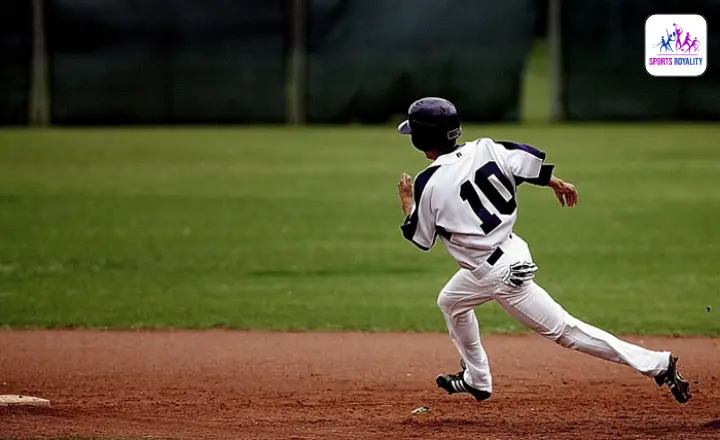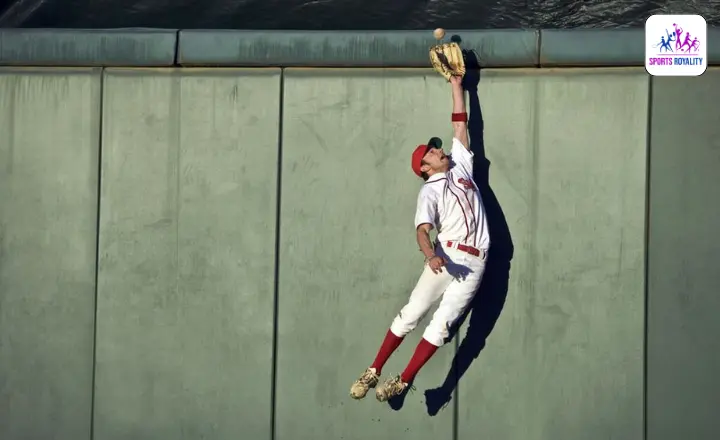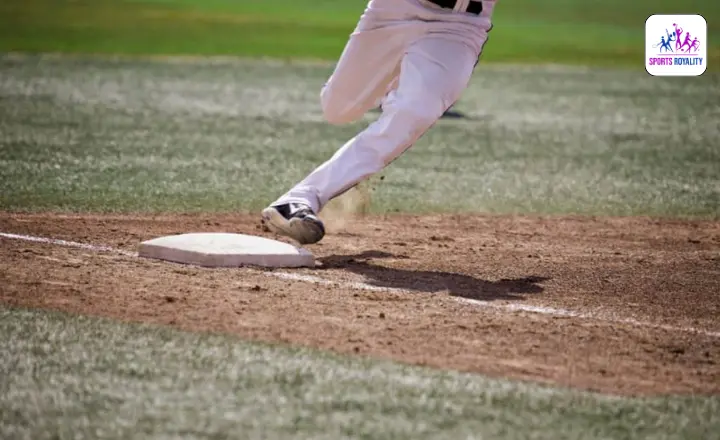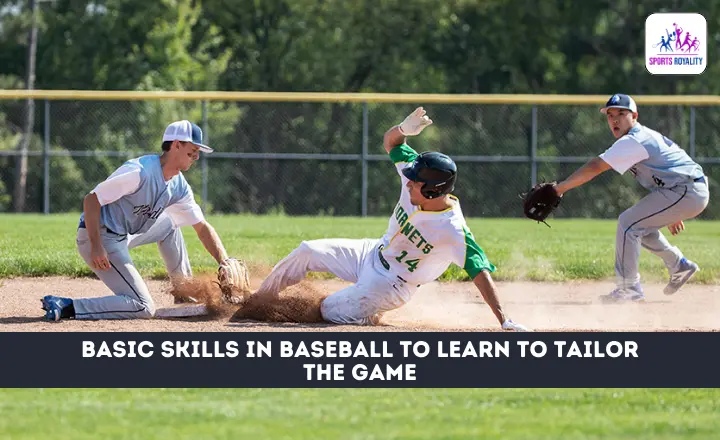Mastering the basics is crucial to success in Baseball, as with any sport. Whether you’re a rookie or an experienced player looking for a refresher, honing your skills in throwing, catching, hitting, and more will help transform you into an all-star athlete on the diamond. Join us as we delve into basic skills in Baseball – get ready to take your game from ordinary to extraordinary.
Learn The Most Basic Baseball Skill To Become A Great Player
One essential skill in Baseball that is often overlooked but can make a massive difference in performance is fielding. Whether you are an infielder or outfielder, having strong fielding skills can significantly improve your game.
It includes having good reflexes to react quickly to a ball being hit your way, having proper footwork and body positioning to get into the best position to make a play, and having the ability to make accurate throws.

A crucial skill in Baseball is pitching. This position requires not only physical strength and stamina but also mental toughness and strategic thinking. A pitcher needs to have a variety of pitches in their arsenal, such as fastball, curveball, changeup, etc, and be able to locate those pitches within the strike zone accurately.
They also need to have reasonable control over their body movements and be able to repeat their mechanics consistently. Mastering basic skills in Baseball can set you apart from the rest and propel you toward becoming a peak performer.
Whether fielding with precision or pitching with finesse, these fundamental skills lay the foundation for success on the diamond. So, the next time you step onto the field, remember that greatness starts with mastering the basics.
Top Four Basic Skills in Baseball:
There are several basic skills that every aspiring player must master. But some essential skills are which we are going to discuss: Hitting, Catching, Throwing, and Running.
1-Hitting
Hitting is one of the fundamental baseball skills, yet it remains one of the most challenging aspects of the game. It takes strength, coordination, and timing to connect that perfect swing with a pitched ball travelling at high speeds.
But hitting goes beyond physical abilities; it also requires mental preparation and strategy. A successful hitter not only has to see the ball well but must also anticipate what type of pitch is coming their way.
One key aspect of hitting that is often overlooked is plate discipline. It’s not just about swinging at every pitch that comes your way. It’s about waiting for the right angle to hit. Good hitters are keen for strikes and know when to lay off pitches outside the strike zone. It increases their chance of making solid contact with each swing.
A factor in hitting is adjusting on the fly. In Baseball, no two pitchers are alike, meaning you need to be able to adapt your approach based on who’s on the mound. Understanding a pitcher’s tendencies can give you an edge as a hitter by allowing you to predict what pitch might be coming next or how they might try to attack you personally.
While basic skills like strength and coordination are essential for successful hitting in Baseball, there are many other factors at play, too. Plate discipline and adjusting to different pitchers are two crucial areas where hitters can fine-tune their craft and improve their overall performance at the dish.
2-Catching
Catching is one of the most essential skills in Baseball, often overlooked but undeniably crucial. A catcher is not just a player who wears protective gear and crouches behind home plate; they are the eyes and ears of the team, directing and managing each play.
Regarding basic skills, a catcher’s ability to catch balls consistently and effectively must be emphasized more. It requires agility, quick reflexes, and keen hand-eye coordination. Seeing isn’t just about physically receiving the ball; it’s also about psychological preparation.

An experienced catcher knows how to read the pitcher’s body language, anticipate pitch selection, and strategize accordingly. But catching goes beyond merely stopping pitches from passing by. A skilled catcher needs to have reliable throwing accuracy as well, an aspect that often gets overshadowed by their catching ability.
The moment a ball reaches their glove lays the groundwork for making a successful throw to any base on steal attempts or pick-off plays. A catcher’s arm strength, combined with precise timing, can change the course of a game entirely.
3-Throwing
While everyone knows the importance of having a solid and accurate throw, there are often overlooked elements that go into perfecting this skill.
One such aspect is footwork. Many players focus solely on their arm strength but must realize that proper footwork is crucial in generating power and accuracy. By positioning yourself correctly and using your lower body effectively, you can maximize the potential of every throw.
A factor that must be considered is the mental aspect of throwing. While physical prowess may be necessary, one must possess mental clarity and focus to execute throws precisely.
This means remaining calm under pressure, being aware of game situations, and making quick decisions based on multiple variables such as distance, speed of the runner, and target location. By incorporating these mental aspects into training sessions and game scenarios alike, players can improve their overall performance on the field.
While mastering fundamental skills like throwing may seem straightforward at first glance, there are hidden intricacies that need to be understood to excel in this area of Baseball. Footwork and mental preparation are two often overlooked factors that can significantly enhance a player’s ability to make accurate throws consistently.
By focusing on these aspects alongside arm strength and technique training, aspiring baseball players can take their throwing skills to new heights and become valuable team assets.
4-Running/ Base Running
Base running is often overshadowed by the more glamorous aspects of Baseball, like hitting home runs or making incredible catches. It is one of the most fundamental and essential skills in the game. A strong base running strategy can turn a close game into a decisive victory.
First and foremost, base runners need to be aware of their surroundings at all times. This means knowing where the outfielders are positioned, understanding the strengths and weaknesses of their opponent’s arms, and recognizing when an opportunity for advancement presents itself.
By staying alert on the bases, runners can take advantage of even the slightest opening to gain that extra base. Base running is having good instincts. While speed certainly helps, it’s more than who can run the fastest when stealing bases or taking an extra one on a hit.

A successful base stealer has perfected the art of timing, recognizing subtle cues from pitchers or catchers that allow them to make their move at just the right moment. It’s a balancing act between being aggressive enough to advance while minimizing risks such as getting caught in a rundown.
Mastering basic skills like situational awareness and instinctual decision-making sets great base runners apart from others in Baseball. Base running may not have its highlight reel like diving catches or tape-measure home runs do, but make no mistake. It’s an art form that demands precision and strategic thinking.
Some More Basic Skills In Baseball To Learn
Arm strength: Arm strength is not just an advantage for fielders; pitchers also rely on their arm strength to deliver fast and accurate pitches that keep batters guessing.
But what does it take to develop and maintain arm strength in Baseball? It goes beyond simply throwing hard or lifting weights. Building arm endurance and preventing injuries requires a comprehensive approach that includes proper warm-up routines, targeted exercises focusing on shoulder stability and mobility, and adequate rest days.
One often overlooked aspect of arm strength is discipline. Just like any other skill in Baseball, consistent practice is critical. Throwing drills should be incorporated into training sessions regularly to improve mechanics and efficiency.
Paying attention to proper form during throwing can have a significant impact on developing power. Aspiring baseball players should open themselves to more than traditional techniques; exploring alternative training methods can enhance overall arm strength. Incorporating exercises with resistance bands can also provide variety while targeting specific muscle groups involved in pitching.
Hand-eye coordination
Hand-eye coordination is one of the fundamental skills in Baseball that can make or break a player’s performance on the field. As the ball hurtles towards home plate at lightning speed, the batter must anticipate its trajectory, calculate its rate, and then coordinate its hands and eyes to connect with it perfectly.
The ability to judge distances accurately and react swiftly is essential in making solid contact with the ball. With practice and training, players can develop this skill to an extraordinary level, allowing them to excel in offence and defense.
Hand-eye coordination goes beyond just hitting a baseball; it permeates every game aspect. Infielders need this skill to quickly field ground balls and make accurate throws across the diamond.
Outfielders rely on it to gauge fly balls against a backdrop of bustling fans and unpredictable winds. Even catchers possess incredible hand-eye coordination as they snag rapidly incoming pitches behind the plate.
Learning these basic skills not only enhances performance but also cultivates focus, concentration, and spatial awareness – qualities that transcend sports into various aspects of life.
Conclusion
Mastering the basic skills in Baseball is crucial for any player looking to excel in the sport. By learning proper throwing techniques, fielding fundamentals, and practical hitting mechanics, players can enhance their overall performance on the diamond.
Understanding base running tactics and developing strong communication skills with teammates is essential to a strategic game. It is vital for aspiring baseball players to prioritize these foundational skills and consistently practice them to improve their game.
FAQs
What Are The Most Defensive Skills in Baseball?
Good fielders have excellent hand-eye coordination, quick reflexes, and soft hands to make consistent plays. They also possess good footwork and agility to move efficiently in any direction.
What Are the Three Primary Skills in Baseball?
The three primary skills in Baseball are hitting, pitching, and fielding.

